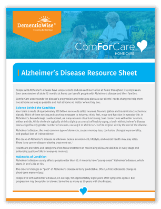In-Home Alzheimer’s Care

In-Home Alzheimer’s Care For Dementia Patients
In-Home Caregiving Services for East Bay Area Alzheimer Patients
Serving the East Bay Area: Dublin, San Ramon, Livermore, Pleasanton, Tracy, CA
If you or a loved one is facing the challenges of Alzheimer’s, finding compassionate and professional in-home care is crucial. Navigating through this journey requires a supportive partner who understands the complexities of Alzheimer’s and offers tailored care that respects the dignity and individuality of each senior. Here’s everything you need to know about in-home care for seniors with Alzheimer’s.
What Is Alzheimer’s-Specific In-Home Care?
Alzheimer ‘s-specific in-home care focuses on providing personalized assistance and support to seniors diagnosed with Alzheimer’s disease right in the comfort of their own homes. This type of care is designed to address the unique needs of individuals at various stages of Alzheimer’s, ranging from mild memory loss to advanced dementia. Caregivers are trained to handle behavioral changes, communication challenges, and the evolving needs of Alzheimer’s patients, ensuring they live as safely and comfortably as possible.
Why Is Specialized Care Important for Alzheimer’s?
Alzheimer’s disease affects every individual differently, leading to a wide range of cognitive and physical challenges. Specialized care is important because it adapts to the changing needs of someone with Alzheimer’s, providing targeted strategies to manage symptoms and improve quality of life. This includes creating a safe environment, using techniques to reduce confusion and agitation, and engaging in activities that stimulate memory and cognitive function. Specialized care also supports the emotional well-being of both the individual and their family.
What Services Are Included in Alzheimer’s In-Home Care?
Services in Alzheimer’s in-home care can vary widely but typically include assistance with daily living activities, such as bathing, dressing, and meal preparation. Additionally, specialized caregivers offer cognitive stimulation through activities tailored to the individual’s interests and abilities. Safety modifications and monitoring are critical components, as well as support with mobility to prevent falls. Care plans often incorporate strategies to manage behavioral challenges and provide emotional support, ensuring a comprehensive approach to care.
How Can In-Home Care Benefit Alzheimer’s Patients?
In-home care benefits Alzheimer’s patients by allowing them to remain in a familiar and comforting environment, which can help reduce the stress and confusion associated with the disease. Personalized care plans cater to the individual’s specific needs and can adapt as the disease progresses. In-home care also offers the flexibility to include family members in the care process, promoting a collaborative approach that enhances the support network around the senior. Additionally, the one-on-one attention from caregivers ensures that immediate needs are met, contributing to a higher quality of life.
Choosing the Right In-Home Care Provider for Alzheimer’s Care
Choosing the right in-home care provider involves researching providers with experience in Alzheimer’s care, assessing the training and qualifications of their caregivers, and understanding the range of services they offer. It’s important to select a provider that values communication and works closely with families to develop and adjust care plans as needed. Look for providers that offer a personalized approach, prioritize the safety and dignity of their clients, and demonstrate a deep understanding of the challenges faced by Alzheimer’s patients and their families.
Finding the right in-home care for a loved one with Alzheimer’s is about more than just meeting their physical needs—it’s about ensuring they are treated with compassion, respect, and dignity. By focusing on personalized care that addresses the unique challenges of Alzheimer’s, families can provide their loved ones with the support they need to navigate this disease with grace and dignity.
Call (925) 243-7373 to learn more about the Alzheimer’s care services offered through ComForCare Home Care (Tri-Valley, CA).
Whether your loved one needs assistance only a few hours a week or around-the-clock, our team is happy to help! Call (510) 538-2273 to learn more about the transition care services offered through ComForCare Home Care (Tri-Valley, CA).






